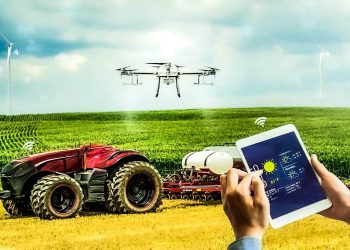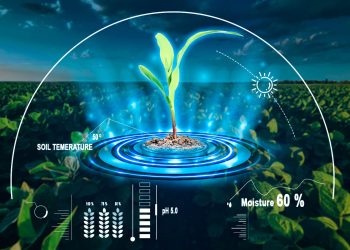The pandemic has significantly altered the global business scenario, accelerating digitalization and unlocking enthralling opportunities for innovators and investors. The Agritech landscape, too, has changed significantly after the pandemic. The challenges brought by the pandemic have facilitated the emergence of different technologies and the growth of digitally enabled agile startups, which are providing different systemic solutions that span multiple steps of the agricultural value chain.
How were the food supply chains disrupted due to the pandemic?
The global lockdowns during and after the pandemic resulted in significant disruptions in food supply chains. Several business activities and supply of food products were impeded due to pandemic restrictions, the closing of food production facilities, and financial constraints.
Effect on Food Supply
The farmers had no choice but to destroy their produce on the field due to restrictions. For example, there were countless reports of dairy farmers dumping several liters of milk due to the obstructed supply chain.
Effect on Food Demand
Due to the fear induced by the pandemic, people started hoarding food items, which resulted in increased demand. For example, the demand for bread increased by 76% and vegetables by 52% within a week of the pandemic announcement. Higher customer demand resulted in vacant racks in stores and decreased supply due to the restrictions. This caused the prices of several food items to soar.
Labor shortages exacerbated by the need to work remotely
Labor shortages because of the COVID-19 crisis caused extreme disruptions in areas such as animal farming, agriculture, collection, and distribution of harvests, which are quite labor-intensive. This reduced the capacity of agribusinesses.
Delays due to labor shortage and restrictions
Agriculture heavily depends upon the season and climate. Due to restricted activities and the need for social distancing, the “agricultural timetable” was not followed, which affected the yield and output.
Transportation delays due to labor shortage and pandemic-related restrictions also disrupted the supply chain badly.
Which technologies and startups will be high in demand to address the challenges of the pandemic?
Due to the food supply chain challenges underscored by the pandemic, investors have now started to look at areas including indoor farming, food safety, logistics, and traceability. Software businesses in Agritech and Foodtech are getting special attention from investors as they are less disrupted by social distancing and changes in business operations.
Investors are looking for investment opportunities in agriculture, with a special focus on breakthrough technologies that will be successful both during emergencies, like COVID-19 and in the recovery period.
Growth of digitally enabled and agile startups
This growing interest of investors in digitally-enabled companies and innovators has led to the emergence of several startups that focus on providing systemic solutions to various food supply problems. They are leveraging the golden opportunity created by the pandemic.
[Also Read: How Modern Farming Technology Covers Agricultural Risk?]
These startups are bringing innovations to keep the food supply up and running. By leveraging new-age technologies such as AI, data analytics, Internet of Things (IoT), and remote sensing, agritech startups are offering immediate solutions in streamlining the supply process.
Below are some examples worth considering:
Soil-less farming:
Several agritech startups are promoting hydroponic and soil-less farming techniques, which demand less space, fewer operations, and produce high-quality food while maintaining the highest level of hygiene. This farming technique is also emerging as a resilient option in the pandemic situation as it takes less time to grow the vegetables, fills the demand-supply gap quickly, and offers better food security.
Precision-based sowing techniques:
Since the farmers have a huge demand to fulfill, agritech startups have come up with precision-based sowing techniques using artificial intelligence. These startups use AI to predict weather conditions accurately and determine the right time to sow seeds, ensuring better production and harvest and minimizing wastage.
Solving farmers’ problems with the technology:
Many technology-based companies are using artificial intelligence, the Internet of Things, and big data to improve the crop cycle and harvest quality. Agritech companies are also making use of machine learning and blockchain technologies to solve farmers’ credit and payment issues.
Wrap Up
With digitization acting as a savior for many small and big businesses after the pandemic, agritech-startups are bringing hope to the crumbling farming community and solving supply chain challenges by integrating their flagship services and innovations with farming practices.







